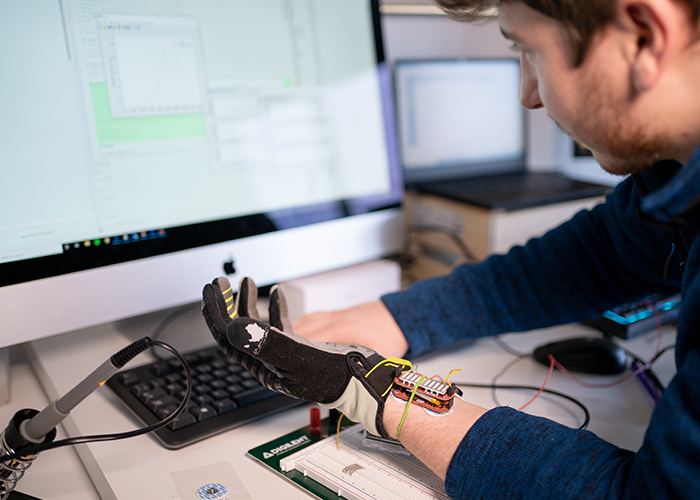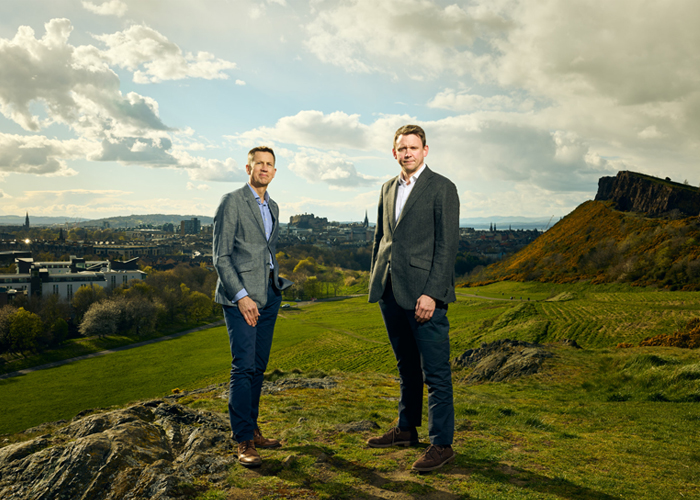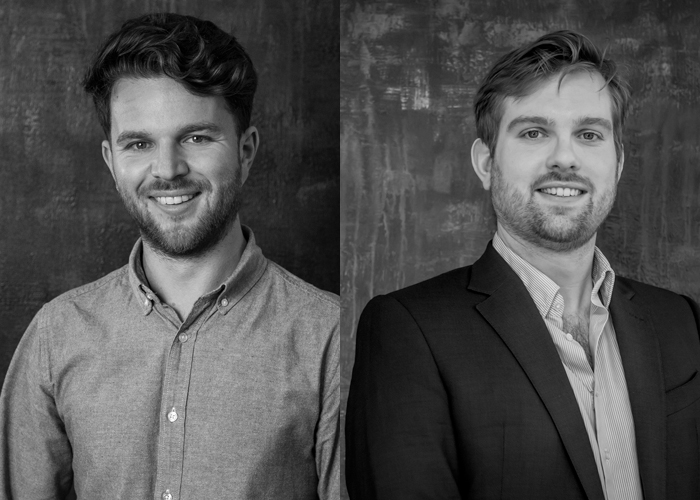ENTREPRENEURS creating AI-powered robotic gloves, personalised medicine, through to ‘x-ray vision’ software are some of the 15 trailblazing organisations selected for the new
artificial intelligence (AI) Accelerator Programme at the University of Edinburgh’s Bayes
Centre in partnership with Scale Space.
• Mark Sanders, Executive Chairman, Scale Space has been appointed to the new
Entrepreneur in Residence (EIR) post at Edinburgh University to support the Accelerator
Programme and Data-Driven Entrepreneurship.
• Accelerator Programme and the EIR post strengthens links between academia and the
private sector.
• Programme participants will benefit from expertise from the Bayes Centre at the
University of Edinburgh, Scale Space and its community of tech companies.
• The Accelerator runs from 18 February to 15 July 2021.
Fifteen start-ups addressing a wide range of pressing global, business and health issues have been selected from applicants across the world to join the Post-Covid AI Accelerator. The accelerator is being delivered by the Innovation Group at the Bayes Centre, in conjunction with Edinburgh Innovations, the University of Edinburgh’s commercialisation service, and in partnership with Scale Space, the UK’s new community for scaling businesses, it was announced today.
The six-month AI Accelerator Programme, based at the Bayes Centre, starts on 18 February and runs until 15 July 2021. It aims to help pioneering AI start-ups with high growth potential to scale globally so they can go on to become world-leading companies, bringing jobs and economic benefit to Edinburgh and the region.
The cohort has been selected from 86 applicants worldwide and follows three previous
Bayes accelerators cohorts, which saw 29 companies raise significant investment. Each of
the successful applicants is addressing a global challenge, many responding to urgent needs in the health and climate change domains. Examples include:
• BioLiberty – has designed an AI-powered robotic glove that strengthens the user’
grip. Grip strength declines as we age and BioLiberty’s glove has the potential to
restore independence for millions of people in the UK and globally. It is particularly
relevant now when people are living longer, are more isolated and can’t easily get
support from friends, family and carers.
• Neeuro – provides personalised home-based digital therapeutics programmes
utilising Brain-Computer Interface (BCI) technology that incorporates machine
learning to help ADHD children improve their attention span. The technology has the
potential to be applicable to other brain health conditions.
• Reath – uses data analytics to enable businesses to find safe, compliant and scalable
solutions for reusing single use items that have been sent to landfill. Reath’s focus is
particularly pertinent given issues around single-use PPE and packaging.
• Data Innovation Al ltd – has created WorkSafeAI that assesses bio-safety risks and
optimises mitigations to limit pathogens being transmitted in workplaces, thereby
helping to protect the health, performance and productivity of workers.
• Lenz Labs – has developed technology to help trains get better traction on the rails
to make perennial issues like ‘leaves on the line’ a fable of the past.
• Net AI – founded by Dr Paul Patras, Associate Professor in the School of Informatics
at the University of Edinburgh, is revolutionising cloud-based virtual network
management via real-time AI analytics. Its cloud-native Microscope solution helps
telecom companies reduce costs.
The AI Accelerator Programme will be delivered from the University of Edinburgh’s Bayes
Centre and through Scale Space’s new digital community platform, Scale Space Connect.
The Bayes Centre is the University of Edinburgh’s home to world-leading expertise in AI.
Scale Space is backed by Blenheim Chalcot, the UK’s leading digital venture builder and has partnered with Imperial College London to launch the first physical site in White City,
London.
A new Entrepreneur in Residence (EIR) has been appointed to support the accelerator
activity across the University’s Data Driven Innovation (DDI) Hubs (Usher, EFI, Bayes Centre, the National Robotarium and Easter Bush). Mark Sanders, Executive Chairman, Scale Space will work with the founders to address challenges they encounter in building their businesses, and introducing them to mentors, academics and investors who can help accelerate their companies’ development. His entrepreneurial experience includes leading the fintech company TDX to a £200 million exit to Equifax in 2014.
Mark Sanders, Executive Chairman, Scale Space and EIR said: “These successful companies are all bringing innovative thinking and technology to solve problems. The strength of the applicants is a testament to the burgeoning AI industry in Scotland and the University of Edinburgh’s role as a global leader in this area. Scale Space’s track record of helping businesses to scale complements the academic strengths at the University of Edinburgh and together we look forward to supporting the growth of the Accelerator participants. I look forward to helping them to get the most from the Accelerator programme and their engagement with Scale Space.”
Jim Ashe, Director of Innovation, Bayes Centre, College of Science and Engineering said:
“In the lead up to COP26, Scotland has the opportunity to take its global focus and
demonstrate its leadership in AI, to deliver solutions to climate change, and economic
challenges created by the Covid-19 pandemic.
“We are delighted to have received funding from the Scottish funding council through the
DDI programme, to enable these dynamic AI companies to grow through participation in thesuccessful Bayes AI accelerator programme. Bayes offers access to world leading academic knowledge, data sets and the UK’s supercomputing facility, together in an environment of investors, entrepreneurs, academics, students and industrial partners.”
Dr John Lonsdale, Head of Enterprise Services at Edinburgh Innovations, said: “The
University of Edinburgh is a world leader in developing AI and Data Driven Innovation. The number and diversity of participants from around the world applying to the Post Covid AI Accelerator is a real endorsement.
“We’re looking forward to working with Mark and the Scale Space team to help the selected companies achieve their fullest potential
“The chosen entrepreneurs have a fantastic opportunity to learn from scale up experts and leaders of other high growth businesses; helping them to grow their companies globally, contribute to our economic growth and make Scotland an even more attractive destination for inward investment.”
Scottish Government Finance Secretary Kate Forbes MSP said:
“A key enabler of Scotland’s recovery from COVID-19 is digital and technology, so it’s great to see the University of Edinburgh’s Post-COVID AI Accelerator support companies exploring how AI can be developed and used in many areas, such as health, and helping to tackle the climate emergency.
With Scotland’s AI Strategy due to be launched on 22 March, this is an encouraging
demonstration of some of the wealth of AI talent already in Scotland, budding international collaborations, and how AI can be used for good. I look forward to following the progress of the Accelerator going forward.”
AI Accelerator participants will benefit from specific and tailored advice as well as group
working sessions and conferences to help their businesses grow. Examples include:
• Mentoring on business fundamentals such as securing investment, business
modelling and financing, talent management and sales and marketing.
• Expert advice from industry leaders.
• The opportunity to work at Scale Space for the London residential element, Covid
rules permitting. This will include the opportunity to meet Scale Space businesses
and benefit from networking and insight events in Scale Space White City.
• Access to Scale Space Connect, the Scale Space digital community, for the duration
of the programme. This will provide participants with access to knowledge banks and
business growth services as well as the opportunity to exchange ideas with other
participants in community forums.
The 15 companies will each receive a £7,500 grant from the Scottish Funding Council
through the Data Driven Innovation (DDI) scheme.
The Programme will also be supported by NILE. NILE is a multi-talented strategic design
team, headquartered in Edinburgh, distributed worldwide. NILE works with multinationals
to the start-up next door, to discover, innovate and design better ways to connect with
people amidst the complexity of the world today.





